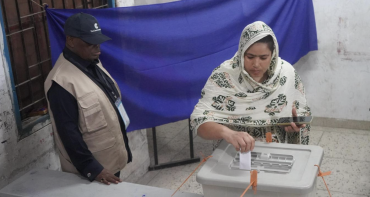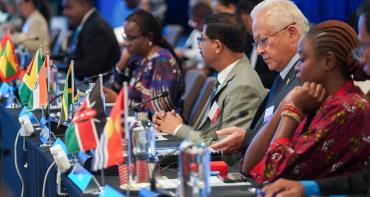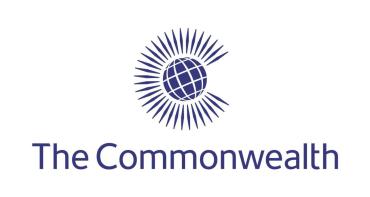Independent legal opinions on the removal of the former Chief Justice of Sri Lanka
Some recent media reports have commented on the handling by Commonwealth Secretary-General Kamalesh Sharma of the findings of two independent legal opinions he received pertaining to removal from office of Sri Lankan Chief Justice Shirani Bandaranayake earlier this year.
Assertions have been made that the Secretary-General sought to deliberately conceal these legal opinions from the Commonwealth Ministerial Action Group (CMAG) and the Sri Lankan government. This is simply not the case.
Commonwealth Heads of Government have clearly defined the work of the Commonwealth Secretary-General and of CMAG. While complementary, they are at the same time different. Commonwealth Heads of Government agreed as recently as 2011 that CMAG and the Secretary-General’s good offices work should be complementary but should proceed along distinct tracks. This is so that each track can maximise its own potential.
The Secretary-General’s work is focussed on discreet behind-the-scenes engagement and technical assistance/advice. CMAG on the other hand has public and political diplomacy at its core, and has both constructive engagement as well as some sanctions, for instance, in its toolbox for dealing with serious or persistent violations of the Commonwealth’s political values.
It is the combination of these two distinct tracks – the Secretary-General’s and CMAG’s – that makes the Commonwealth different and that makes our quiet behind-the-scenes-diplomacy effective. It is why we have been able to make considerable progress with Sri Lanka in less than one year. What we have been able to achieve with the Commonwealth Secretary-General’s diplomatic engagement has yielded results – in our view, far more than any other international partner has been able to achieve in that timeframe on issues of considerable sensitivity.
With respect to the impeachment of Chief Justice Shirani Bandaranayake earlier this year, Mr Sharma expressed public caution and the Commonwealth’s shared concern (see links below) at the time. He then sought confidential opinions and advice - including from the now late Justice Pius Langa and Professor Jeffrey Jowell as well as other sources. This was advice on which to construct his efforts and targeted assistance to address the fall-out from the impeachment in a durable way, given not only Commonwealth concern but also the fact that authorities in Sri Lanka admitted that changes to the current procedures were required.
Building on the opinions and advice received, the Secretary-General has since provided Sri Lanka with a comprehensive report drawn from Commonwealth best practice on the appointment, tenure and removal of judges. The Secretary-General also renewed his offer of assistance with any changes required. Only this week, the Commonwealth Secretariat was informed by the Sri Lankan authorities that the report and advice provided by the Secretary-General has been positively received, welcomed, and is now tabled in a Sri Lankan Parliamentary Select Committee which is now to deliberate on how to proceed.
The earlier legal opinions and advice, provided in confidence, led to a practical contribution which is now in the public domain, that has been welcomed, and that offers the prospect of change for the better. That is how the Secretary-General’s work of this kind occurs.
The legal opinions were not therefore in any way concealed. They were commissioned by the Secretary-General in support of his ‘good offices’ work alone following the impeachment. It is important to note that both CMAG and the Sri Lankan authorities have been kept informed of the Secretary-General’s work and have welcomed and encouraged it. Furthermore, the amount of information provided by the Secretary-General to CMAG to inform its decisions, especially on his good offices work, has continued to increase and indeed the Secretary-General has introduced a standing practice of providing CMAG with a comprehensive briefing update at each of its meetings.
We have also encouraged the Sri Lankan government to advance implementation of the recommendations of its Lessons Learned and Reconciliation Commission (LLRC). And our efforts to encourage the creation of democratic space in the north also bears mentioning: a Commonwealth Election Observer Mission will be present at the Northern Provincial Council Elections on 21 September.
The Commonwealth Secretary-General has been robust on all matters pertaining to the fundamental values of the Commonwealth. He has issued several public statements expressing his and the Commonwealth’s position on the matter of the former chief justice’s impeachment. These statements date back to late 2012 and early 2013 and are referenced below:
12 December 2012
Commonwealth Secretary-General encourages Sri Lanka to maintain separation of powers and integrity of the roles of the Executive, Legislature and Judiciary. Secretary-General further encourages full and practical application of shared Commonwealth commitments with regard to the impeachment process
http://secretariat.thecommonwealth.org/news/34580/34581/251940/121212imp...
11 January 2013
Commonwealth Secretary-General concerned and urges pause
http://thecommonwealth.org/media/news/sri-lanka-impeachment-commonwealth...
13 January 2013
Secretary-General expresses deep disappointment at the dismissal of the chief justice
http://secretariat.thecommonwealth.org/news/252607/130113slcjdismissal.htm



